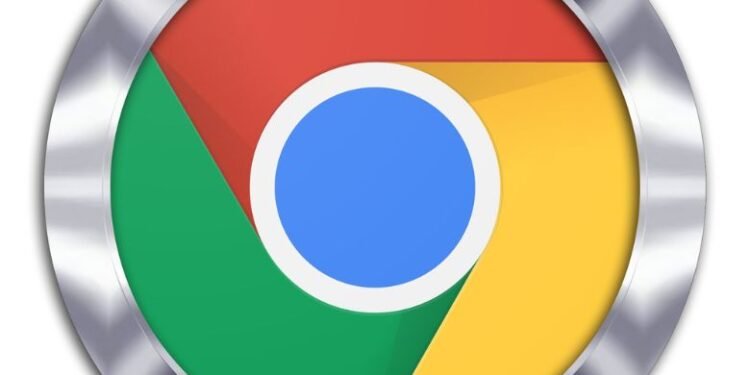Learn why uBlock Origin Chrome no longer supported and discover fixes to stay protected from unwanted ads.
(A personal journey + complete guide for what’s happening and how to stay ahead)
If you’re reading this, chances are you typed something like “uBlock Origin Chrome No Longer Supported”, saw a warning in your browser, or noticed more ads creeping back into your browsing experience. I’ve been there too … I glanced at the small blue icon of uBlock Origin in my toolbar one morning, only to find it greyed out with a message like “This extension may soon no longer be supported”. That moment prompted a deep dive into what the heck was happening, much like when I first tried to figure out the confusing world of Media Mail timing, and I want to bring you along on that journey.
In this article we’ll walk through why uBlock Origin on Chrome is facing serious limitations, what “no longer supported” really means, how you can respond (yes, there are workarounds), and what the future holds … especially if you’re in a place like Lahore, Pakistan, where ad‑blockers matter a lot. And yes … I’ll keep reminding the keyword “uBlock Origin Chrome No Longer Supported” so you know we’re staying focused.
What’s going on?
When you search “uBlock Origin Chrome No Longer Supported”, you’re really asking:
- Why is uBlock Origin telling me it’s no longer supported on Chrome?
- Is it still safe to use?
- What will break, and what can I do about it?
Here’s the short version: The developer of uBlock Origin has warned that due to changes in the Chrome extension system … specifically the move from Manifest V2 (MV2) to Manifest V3 (MV3) … the full version of uBlock Origin cannot continue functioning on Chrome in the same way. Reddit+3DEV Community+3The Verge+3 In other words: uBlock Origin Chrome No Longer Supported means exactly what it sounds like … the extension’s full power is being taken away (or already has) on Chrome.
Here’s the anecdote part: I remember the day I installed a fresh Chrome update, opened YouTube, and suddenly ads were back … because my uBlock Origin icon looked inactive. I thought I’d done something wrong (did I accidentally toggle it off?). But nope … it was the system itself changing beneath the extension.
Why did Chrome make this change?
You might wonder: Is this a random glitch? Far from it. This is a deliberate shift by Google Chrome. The extension framework moved from Manifest V2 to Manifest V3. Why? Because Google says: “security, privacy, performance”. But many users and developers say: “Wait … you’re making my ad blocker weaker”.
The technical basics
- Under MV2, extensions like uBlock Origin could use the webRequestBlocking API and intercept every network request before it loads.
- Under MV3, that API is heavily restricted; instead you have to use declarativeNetRequest which is far more limited. uBlock Origin+2mjtsai.com+2 That means: uBlock Origin’s advanced features (dynamic filters, blocking scripts, cosmetic filters, etc.) are harmed on Chrome.
What even “no longer supported” means
It doesn’t always mean the icon disappears tomorrow and you’re helpless … but it does mean you will lose features. uBlock Origin might still block some ads for now, but the blocking will be weaker, some websites may show more ads, and future browser updates may render it non‑functional. For example:
“uBlock Origin requires MV2. It will no longer function on Chrome or Chromium‑based browsers once they stop supporting MV2.” Reddit
In short: uBlock Origin Chrome No Longer Supported = the full version you trusted is being phased out on Chrome.
My personal journey + “aha” moment
Let’s rewind a bit. I’ve used uBlock Origin for years … I liked how it quietly blocked ads, popups, trackers while I browsed from my desk in Lahore, doing work or streaming videos. Then one morning: I opened Chrome, visited a site, and bam … ads. My heart sank. I clicked the uBlock Origin icon, it looked weird. I went to “Extensions” and found a message: “This extension is no longer supported.” I felt foolish … like my digital shield was gone.
So I did what I do whenever I’m annoyed: Googled it, read Reddit threads, GitHub issues. I found the term “uBlock Origin Chrome No Longer Supported” popping up everywhere. I realised: This isn’t just me. It’s a systemic change. And I needed to figure out what to do next.
What are users experiencing?
If you’ve typed “uBlock Origin Chrome No Longer Supported”, you might already be seeing one or more of the following:
- The uBlock Origin icon greyed out or disabled.
- Chrome telling you “This extension may soon no longer be supported” or “turned off because it’s no longer supported”. TheuBlock Origin Chrome No Longer Supported
- Verge+1
- More ads showing up, especially on sites you thought were fully blocked.
- Filter lists or custom settings no longer working.
- The extension cannot be installed anew (if you uninstall and reinstall).
If you live in a region such as Pakistan, where many sites rely on ad revenue or track heavily, the change might feel especially noticeable … ads returning, slower loads, etc. What started as “uBlock Origin Chrome No Longer Supported” now feels like a real problem.
What you can do (and quickly)
Don’t panic. There are multiple options (yes, I tested most of them) when you search “uBlock Origin Chrome No Longer Supported”. Here are your moves:
- Switch browser
If you want full uBlock Origin capability, move to a browser that still supports MV2 or has better support for ad‑blockers. For example, Mozilla Firefox is explicitly supported. Software Recommendations Stack Exchange+1 I made this move on my secondary PC: installed Firefox, added uBlock Origin, and felt relief. No more “grey icon” anxiety. - Install uBlock Origin Lite (uBOL)
If you stay on Chrome, there’s a version called uBlock Origin Lite built for MV3. But it comes with limitations … less powerful blocking, fewer filters, etc.
In my case I tried uBOL for a week. It worked reasonably but definitely let more trackers through compared to the full uBlock Origin I used on Firefox. - Keep existing uBlock Origin but accept degradation
If you already have uBlock Origin installed on Chrome, you can keep using it for now. It may continue blocking to some degree until the cut‑off (browser version, region) hits you. But this is a stop‑gap.
I enabled uBlock Origin on Chrome and told myself: “Okay, this is temporary. I’m preparing for change.” - Explore other ad‑blockers or system‑level blocking
If you’re comfortable, switch to a different extension or use network‑level blocking (e.g., Pi‑Hole, DNS filters). Search “uBlock Origin Chrome No Longer Supported alternatives”.
Risks, and what to watch out for
- Installing random forks: With uBlock Origin usurped, some malicious actors may upload fake «uBlock‑like» extensions. Always verify the developer (gorhill) and official repository.
- Reduced blocking = more exposure: Less effective ad‑blocking means more trackers, more pop‑ups, more potential malware. Especially in regions with aggressive ad networks.
- Workarounds may break: Some flags or browser hacks let you keep MV2 active for now … but Google is targeting full removal.
In short: Seeing that phrase “uBlock Origin Chrome No Longer Supported” should trigger action, not complacency.
Future outlook – what to expect
Here’s where things get real. If you search “uBlock Origin Chrome No Longer Supported” you might want to know: When will the wall drop? When will uBlock Origin stop working entirely on Chrome?
- Chrome version 139 (and around that timeframe) is cited by the developer as the key milestone when Manifest V2 support will be removed for many users
- Browsers based on Chromium (e.g., Edge, Opera, Brave) are also impacted. Brave has said they’ll try to support some MV2 extensions longer.
- For power users: Expect that uBlock Origin’s full features will be gone on Chrome in the near future … hence why the search term “uBlock Origin Chrome No Longer Supported” is trending.
- If you want long‑term ad‑blocking strength, building habits around Firefox or other browsers that don’t force MV3 exclusively is wise.
My path: I decided to keep Chrome for casual use (web surfing, streaming) but moved all serious browsing, research and work to Firefox with full uBlock Origin. That split‑browser approach helped me regain control and feel less at the mercy of shifting browser policies.
FAQs
Is uBlock Origin totally dead on Chrome?
Not immediately, but its full functionality is being phased out. The labeling “no longer supported” is accurate for the current model.
What happens if I uninstall and reinstall uBlock Origin on Chrome now?
You may find you cannot install the full version any more … because the Web Store may block older API versions. One guide shows this workaround. Cloudwards
Will uBlock Origin still work on Firefox?
Yes. uBlock Origin continues full support on Firefox … it works best there.
If I use uBlock Origin Lite on Chrome, am I set?
Sort of. You get some ad‑blocking but not the full set of features. If you’re fine with fewer filters and slightly weaker blocking, yes. If you’re a power‑user, you’ll notice the difference.
Key Takings:
If you searched “uBlock Origin Chrome No Longer Supported”, you’re ahead of the curve.
You’re asking the right questions at the right time. I went from seeing random ads pop up, to reading GitHub threads, to switching browsers and reclaiming control … and you can too.
Here’s the Key Takings:
- Acknowledge that uBlock Origin on Chrome is no longer supported in the sense of full capability.
- Choose your path: switch browsers, install the Lite version, or accept the drop in functionality.
- Stay flexible, because the ad‑block ecosystem is changing fast.
- I’ll end with this metaphor: Think of uBlock Origin on Chrome like an old car you loved that’s now failing to start because the manufacturer changed the fuel system.
- You can keep driving it short‑term, maybe do some workarounds, but long‑term, you’ll either switch to a new car
- (Firefox + uBlock Origin) or install a weaker engine in the old one (uBlock Origin Lite).
- And since you’re here reading this … you’re already making the right move.
















